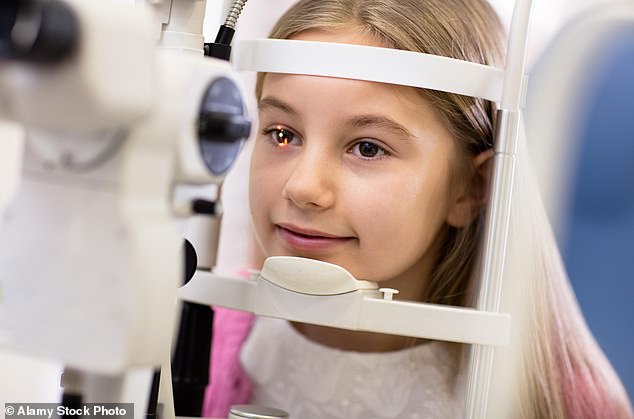Nearly half of Britons wrongly believe that eating carrots is the best way to improve their vision, research has revealed.
A survey quizzed 2,000 adults and found that two thirds know that diet can impact vision but the majority do not know which foods are beneficial.
The study, by supplement brand MacuShield, also found that one in three admitted they struggle with vision problems.
Around two million people in the UK are living with some form of sight loss, with this expected to rise to 2.7 million by 2030.
Experts believe that this could be reduced by making changes to diet and habits.
Dr Emma Derbyshire, a nutritionist and health writer, expressed her concern and said: ‘It’s clear from [the survey] that many people are completely unaware of the nutrients which support eye health.’
The nutritionist suggested good vision can be maintained by eating eggs instead.
She said: ‘Eggs – a fridge staple for many of us – contain good levels of vitamin B2, which is important to help maintain the opacity and clarity of the lens. This contributes to the maintenance of normal vision.’

Nearly half of Britons wrongly believe that eating carrots is the best way to improve their vision, research has revealed (Stock Photo)
The nutritionist explains that the mineral zinc is also crucial to eye health, as it supports the retina — which helps detect light.
This can be found in red meat, but also oysters and nuts.
She also suggests eating oily fish such as sardines or tuna at least once a week, to support the retina as it contains a high level of docosahexaenoic acid (DHA) – a key nutrient for eye health.
Swapping to whole grain carbohydrates, can also help according to experts.
Locum optometrist Francesca Marchetti advises: ‘These contain vitamin E, a fat-soluble antioxidant which contributes to the protection of cells from oxidative stress. Plus, whole grains also contain the mineral, zinc.’
The experts also recommend eating leafy greens and fruits such as oranges.
Dr Derbyshire said: ‘These aren’t expensive foods which can only be bought in specialist shops. These are every day, affordable foods available in your local supermarket.’












